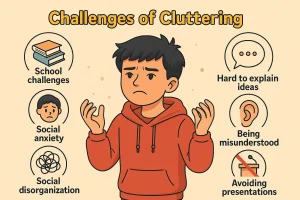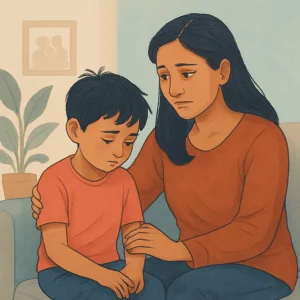Why saying No in a Relationship is a Good thing?
By Prapoorna M
Last Updated: November 26, 2021
Every relationship is beautiful in its own way. Everyone wants to keep up their relationship and tries to give more for it. Even though there are times that demand us to give up, we never do. But for that, are we sacrificing ourselves too much? In the longing of keeping up a relationship, are we bending too much that it squeezed the guts of negating something? Just have a look at the past and remember when you said no and what the consequences were.
Though you don’t feel like saying a yes, you might have already told it, not wanting to upset your partner. But have you ever considered the good that happens with a no? Yes. Not every time can a person think rationally and perfect. Any relationship thrives when both are willing to put a foot front. Both should think and both should take decisions combined. In any case, if there is a point to negate, one has to do it, because of the good for both or maybe because you need not have to do it.
Book Relationship Counselling Now
Why Should You Say a No?
Saying yes all the time and especially when you don’t mean it can backfire and spoil your relationships. Learn to say a no which is actually good for your relationships, in the long run. Actually, saying No means making room for things that matter. This gives a chance to focus on the other important things. Saying and hearing negative responses are part of relationships.
Setting Boundaries in a Relationship
Some people believe that boundaries are to be set by people in the initial stages of any relationship in order to maintain better relations. Actually, boundaries are not set by telling people what their boundaries are. Having the confidence of saying a No, is an important part of setting boundaries, and for that, you must know what you want and what you don’t. If no healthy boundaries are set, the relationship will get into trouble.
Learn more: Relationship tips: Are you wasting your time with the wrong person?

The signs of such trouble could be like
- One partner is more interested in spending time while the other needs a lone time.
- One partner is taking more responsibility while the other just relaxes all the time
- While one of you is so moody, the other walks on eggshells while conversing, etc.
Please check if your relationship is getting toxic and find ways to solve it out. To keep your relationship in balance, only one of you should never do all the planning and calling, all the giving or taking, and all the chasing and caring. Everything should be distributed evenly between you both, according to the skills you have. If you are considering a group relationship, you may take initiative to suggest who can do what appreciating the capabilities of them. Also, negating in such cases would be much easier as there will always be someone to take the help of.
Also read: 5 Signs that your marriage is falling apart
Know What You Have in Mind
Before thinking of saying a no, read your mind completely like why do you want to say no and the reasons related, whether to want to say those reasons or not, how do you want to say it and when. If you feel you are being taken for granted, just back off a little, without drama and your partner will move towards you. If you feel overwhelmed by your partner’s aggressiveness, just take a lead step and say a simple no.
When you encounter an emotional person in your relationship, who is too much of drama, aggressive and overwhelming that it becomes hard for you to say a no, or if you just control the urge to shout a no under your teeth so as not to spoil the relationship, then show it on your face. Keep a dull, silent, and expressionless face that itself says your answer is negative. You may simply say “Sorry, I’m not interested.” Or “No, I don’t like it, sorry” and walk out without any extra emotion that could trigger a fight.
While remaining polite in your speech, be firm with your negation. It adds a sense of self esteem to you. It is always necessary to say a NO when you know that it is not at all alright to say a Yes!!
Read more: Better ways to communicate in relationships
Discuss Things
Let your partner take time to express his/her opinions and views. Don’t let any of your conversations be straight ones. Both should discuss. It is only when discussions take place, does a person can understand what you actually are looking for. Hence it would be easier for you to say a No when the opinions are clearly discussed, without letting the egos do the talking. This enables the tension between you two to subsidize. Concentrate on what your partner is saying without mentally wandering off.
This is highly important to deliver a constructive No. After your partner says something, acknowledge smoothly that you have understood what is said and share your experiences and opinions on that in a smooth way. In case, you feel that certain points or opinions expressed have to be denied, give proper reasons like the history of repetition due to the same causes or the probable risk involved or so.
Striking an emotional balance verbally, while a controversial topic is going on, is extremely tough. But this is where people can get hurt and the relationships might turn sour. Be careful in your approach. Don’t forget to add a return question at the end saying, “Don’t you think so?” or “What do you think?” Sometimes when you have trouble saying a no on the face, look for other alternatives such as mail, message or call to convey your answer. But don’t forget to say it.
Learn more: Essential Guide to Relationship Counselling
Comparison of Healthy vs. Toxic Relationship Traits
| Trait | Healthy Relationship | Toxic Relationship |
|---|---|---|
| Communication | Open and honest, with active listening and mutual understanding | Avoidant or aggressive, often leading to misunderstandings |
| Respect | Mutual admiration and valuing each other’s opinions | One or both partners feel devalued or disrespected |
| Independence | Encourages personal growth and freedom, without feeling threatened | Dependence or control issues, stifling personal growth |
| Conflict Resolution | Approached with the aim to understand and resolve, not to win | Frequent, unresolved arguments that escalate instead of finding common ground |
| Emotional Support | Consistent support and validation, respecting emotional needs | Lack of support or undermining each other’s emotional needs |
Say it Correctly
Many of us have the notion that saying a No could hurt the relationship. Remember that saying yes or no won’t cause any harm to the relationship, but the way and time of conveying it, can certainly do. It is really important to convey your negation as simple and firm as possible without hurting the feelings of others. But if the other person is being too dramatic, remember that you are also a human being and your feelings are also equally important.
Also, during some cases, you might need to wait for the right moment to say a No while in some cases it would be better to say it as soon as possible. So, take your call on saying it as per the time and mood of the situation. Most importantly, if you get a negative response from your partner, accept it and don’t push or humiliate him/her. But, when the act of saying no or yes is repetitive for a longer period, then it could really have some effect on the relationship.

How to Say it?
Mention it clearly but looking straight into the eyes and in a clear tone. Don’t humiliate the person, also, don’t take the guilt part to say a No. It’s okay to be generous in your explanation for a No rather than feeling bad later on. In case, it is possible to give an option in exchange, never hesitate. In other words, offer saying, “I’m sorry that I can’t do it now.
But, I’m sure we can make it next weekend.” Or maybe, “I’m afraid I can’t accept that dear. Let’s sit together and make a conclusion, in the evening today.” Suggesting an alternative or another option like this could lessen the harm that your no creates. This saves them from the fear of approaching again and getting rejecting.
Is your relationship getting toxic?
In case, it turns out that you both started to have an argument, ask about something that your partner said before and let your partner speak about it and listen patiently. You will get more information to work on. You will understand that there’s so much to talk about. Find a suitable time and environment and talk with a cool mind. In case, things are not working well or if something doesn’t seem right, never hesitate to seek the help of a psychologist to get a relationship counseling therapy.
Don’t mess with your relationship in the first place. In some relationships, if a partner is demanding, the other feels oppressed, or if one is a care giver the other behaves with no emotions at all. Belittling your partner should never be your objective. In the same way, giving up your privacy is also a mistake. When such differences make you struggle inside, the flow of emotions between each other is blocked by these struggles.
But when you are committed to maintain boundaries, understand them, preserve equality and mutual satisfaction you are more likely to create a better partnership, which would eventually improve respect for each other. If you are expecting some emotional support and professional help in making your relationships better, you are welcome. Book an appointment, today.
Exploring Deeper Traits of Healthy vs. Toxic Relationships
| Trait | Healthy Relationship | Toxic Relationship |
|---|---|---|
| Trust | Built on strong trust, with no need for constant checking or suspicion | Frequent jealousy or distrust, leading to possessive behaviors |
| Privacy | Respects each other’s privacy and personal space without intrusion | Invasion of privacy or not respecting personal boundaries |
| Supportiveness | Offers encouragement and stands by each other through challenges | Lack of support, or one partner feeling left to face challenges alone |
| Growth Mindset | Both partners encourage personal and mutual growth and learning | Resistance to change, with one or both partners stifling growth |
| Happiness | Shared joy and contentment, with positive experiences outweighing the negative | Predominantly negative interactions, with happiness being rare or conditional |
Read more: The 5 Phases of a Relationship every couple goes through
Conclusion
The essence of saying “No” in a relationship is intricately tied to the establishment and maintenance of healthy boundaries, which in turn fosters mutual respect, understanding, and a balanced partnership. This article has highlighted the critical role that negation plays in preventing self-sacrifice to the point of personal detriment, encouraging a more equitable distribution of emotional labor, and ensuring that both partners feel seen, heard, and valued. By embracing the ability to say “No,” individuals can avoid the pitfalls of toxic dynamics, enabling both partners to focus on what truly matters in their relationship. The practice of discussing disagreements and concerns openly, without fear or aggression, nurtures an environment where emotional balance and well-being are prioritized, laying the groundwork for a stronger, more resilient bond.
The role of wellness hubs in this context cannot be overstated. These spaces provide essential support and resources for individuals and couples navigating the complexities of their relationships. They offer a sanctuary for emotional healing, professional guidance, and the acquisition of communication strategies that respect each partner’s boundaries and needs. As we recognize the importance of saying “No” for the health of our relationships, we also acknowledge the invaluable assistance that wellness hubs offer in facilitating this process. Whether through counseling, workshops, or supportive dialogues, these hubs play a pivotal role in empowering individuals to make decisions that honor their well-being and foster a more fulfilling and equitable partnership.
Frequently Asked Questions:
1. Why is it important to say no in a relationship?
Saying no in a relationship is crucial for maintaining healthy boundaries, ensuring mutual respect, and fostering a balanced partnership. It prevents self-sacrifice, encourages equitable emotional labor, and helps avoid toxic dynamics, allowing both partners to focus on what truly matters.
2. How can setting boundaries improve a relationship?
Setting boundaries improves relationships by clearly defining personal needs and limits, which helps prevent resentment and misunderstanding. It encourages open communication, respects individuality, and promotes a healthier, more supportive partnership.
3. What are the signs of a toxic relationship?
Signs of a toxic relationship include one partner dominating time or decisions, lack of mutual support, constant negativity, emotional or physical abuse, and feeling drained by the relationship. Recognizing these signs is the first step toward seeking help or making changes.
4. How do wellness hubs support relationship health?
Wellness hubs offer resources, professional guidance, and emotional support for individuals and couples navigating relationship challenges. They provide strategies for effective communication, boundary setting, and emotional well-being, fostering stronger and more fulfilling partnerships.
5. What should you do if you struggle to say no to your partner?
If you struggle to say no to your partner, consider seeking support from a wellness hub or a relationship counselor. They can provide strategies for assertive communication and help you understand the importance of respecting your own needs and boundaries in the relationship.
6. How can couples discuss disagreements constructively?
Couples can discuss disagreements constructively by actively listening, expressing their feelings without blame, and seeking compromise. It’s important to focus on understanding each other’s perspectives and finding solutions that respect both partners’ needs.
7. What role does emotional balance play in a relationship?
Emotional balance is vital in a relationship as it ensures that both partners feel heard, valued, and supported. It helps manage conflicts more constructively, fosters empathy, and strengthens the emotional connection between partners.
8. Can saying no too often harm a relationship?
While saying no is crucial for boundary setting, doing so excessively without open communication can create distance or misunderstanding. It’s important to find a balance, ensuring that negations are justified and discussed openly to maintain a healthy, supportive partnership.
9. How do you handle a partner who struggles with accepting no for an answer?
Handling a partner who struggles with accepting no involves clear, compassionate communication about your needs and boundaries. It may also require seeking external support from a counselor or therapist to help both partners understand the importance of mutual respect and compromise in a healthy relationship.
10. What strategies can couples use to ensure their boundaries are respected?
Couples can ensure their boundaries are respected by clearly communicating their needs and limits from the outset, regularly revisiting and adjusting these boundaries as their relationship evolves, and practicing active listening and empathy to understand and honor each other’s perspective. Additionally, reinforcing positive boundary respect with appreciation can strengthen the relationship’s foundation.
About the Author:
Prapoorna Mangalampalli
M.Sc., M.A., (Dual Masters in Psychology & English) – Counselor (6+ years of experience)
Prapoorna armed with a passionate dedication fueled by dual Master’s degrees in Psychology and English, Prapoorna sheds light on and elevates human experiences. Over 6+ years of experience fuel her insightful approach to counseling, offering profound empathy and guidance across diverse areas like online, marital, relationship, child, family, and career counseling.
At Wellness Hub, she thrives in a team environment that values innovation, compassion, and achieving results for their clients.
Connect with Prapoorna to learn how she can help you or your loved one find their voice and build a brighter future.
Book your Free Consultation Today
Parent/Caregiver Info:
Client’s Details:
* Error Message









